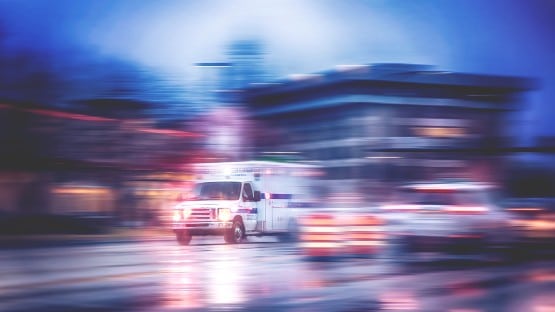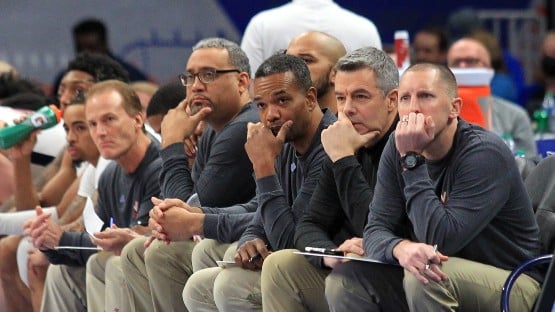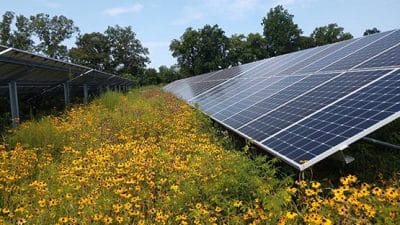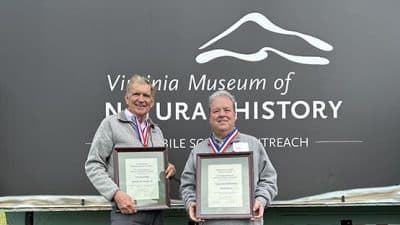
A UVA Health program has helped some of the emergency department’s most frequent users reduce their number of visits while better accessing the care they need.
UVA Health’s Community Paramedicine program, a part of UVA Health’s Population Health Department, provides a variety of resources to assist patients — from connecting them with a primary-care provider to helping them navigate health-insurance needs.
In just a year, the average number of Emergency Department visits dropped from eight in the 180 days before patients enrolled in the program to three in the 180 days after patients completed the program. Thirty patients were able to establish a new relationship with a primary-care provider.
“We work to figure out if we can make some improvements to their care if they’re willing to work with us to make some changes,” Patrick Watson, one of UVA Health’s three community paramedics, said.
The program is designed to help patients who frequently visit the Emergency Department for non-emergency reasons, such as patients with chronic conditions like diabetes or high blood pressure. Patients can be referred to the program by Emergency Department care providers or by local rescue squads. About 20 to 25 patients are typically enrolled in the program at any given time, Watson said.
Patients who agree to participate in the program receive a home visit from UVA Health’s community paramedics, who also review the patient’s medical records to see what could be causing the repeated Emergency Department visits. Emergency departments and rescue squads are set up to address patients’ immediate symptoms, “not the root of what’s causing the symptoms,” Taylor Tereskerz, one of the community paramedics, said.
During the 30 to 60 days a patient usually spends in the program, the community paramedics work to address the patient’s social determinants of health, including access to food and transportation to medical appointments, as well as review their medications and get them connected with all needed primary and specialty-care providers.
Patients also work with UVA’s Interactive Home Monitoring program, which provides them with a tablet computer for telehealth visits and devices to monitor vital signs such as blood pressure, weight, heart rate, temperature, blood-sugar levels and oxygen levels. Patients also learn about when they should seek care in the Emergency Department versus visiting an urgent-care center or contacting their primary care provider.
If a “triggering event” happens, such as an Emergency Department visit or frequent calls to 911, UVA community paramedics will visit the patient and work to resolve any underlying issues. Through visits, UVA’s community paramedics have prevented 50 trips to the Emergency Department in the past year, not only aiding patients but also helping to reduce wait times in the Emergency Department.
For Darla Rich, weekly visits from Watson and Tereskerz “have been a lifesaver” in helping her manage several serious health conditions, including chronic obstructive pulmonary disease, heart failure and atrial fibrillation, a heart rhythm disorder.
“It’s so nice to have someone with a pleasant smile come in to check on me,” Rich said.
During their visits, Watson and Tereskerz have done everything from check her vital signs and provide education on how to best manage her conditions to patching her up after she suffered cuts from a fall. With their assistance, Rich has not visited the Emergency Department in about a year.
Beyond the medical help they’ve provided, Rich also deeply appreciates the care that Watson and Tereskerz have shown her.
“They stopped by one day to wish me a merry Christmas. That means a lot,” Rich said. “I just want everyone to know what wonderful people they are.”










